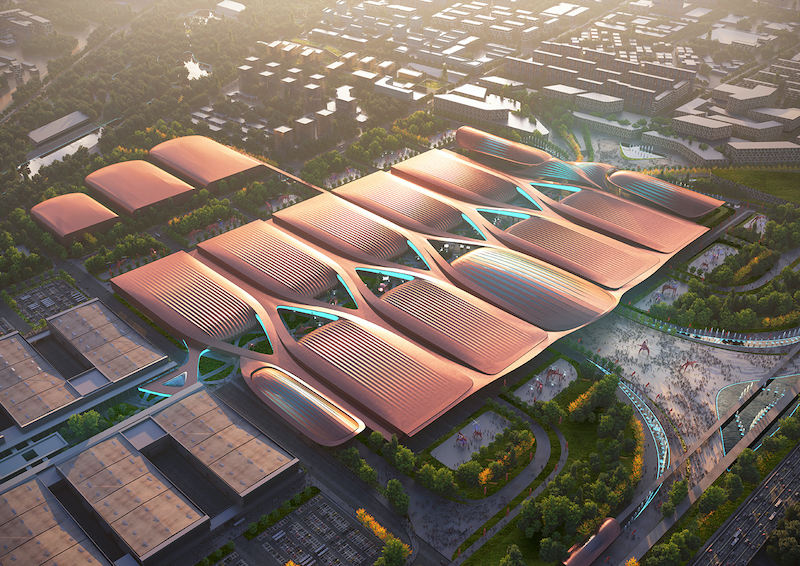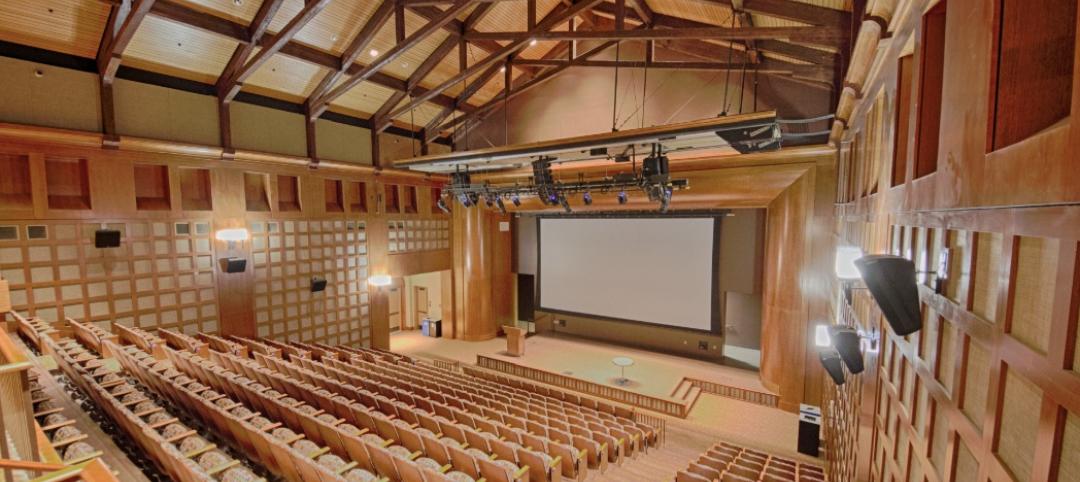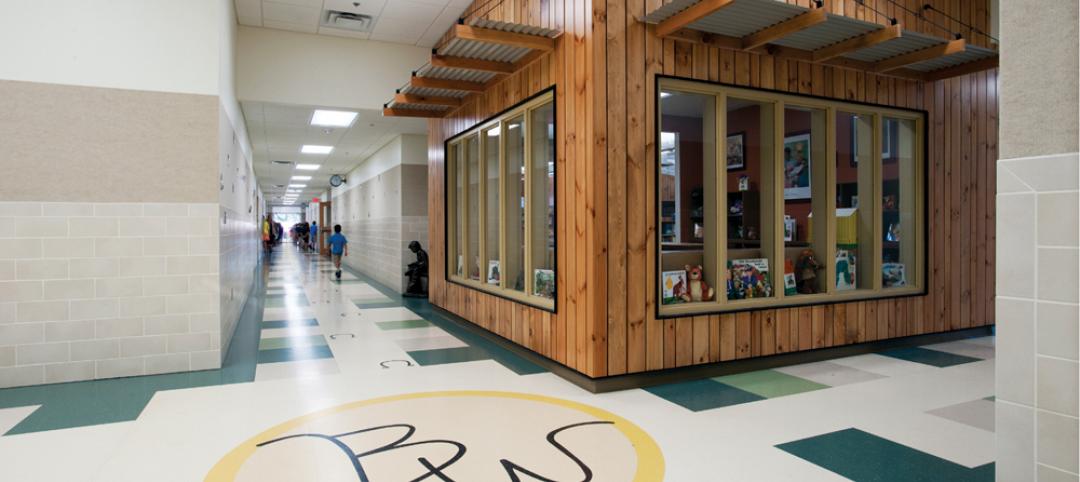Zaha Hadid Architects has won a competition to design the 4.7 million-sf Phase II of Beijing’s International Exhibition Centre. Phase II will significantly expand the Centre’s exhibition space and enhance Beijing’s position as a center of knowledge and international exchange. In addition to 3.7 million-sf of exhibition space, the Centre will also include a 516,000-sf hotel and a 473,000-sf conference center.
Located at the core of the International Airport New City in Beijing’s Shunyi District, the center will feature integrated relationships between the exhibition halls, conference center, and hotel that are echoed in the Centre’s composition. The spaces will be arranged as a series of interconnecting lines and geometries that draw inspiration from the textures of glazed tubular ceramic tile roofs within traditional Chinese architecture. Copper color and large recessed windows give further expression to the visually dynamic envelope.
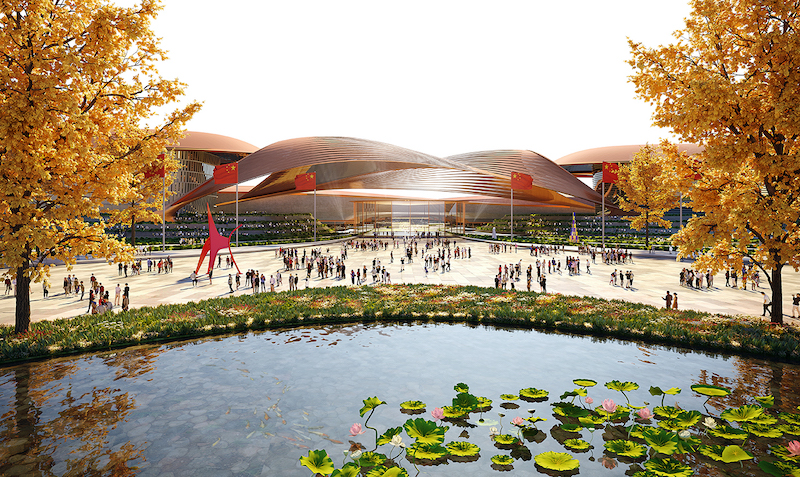
A composite roof system will insulate the indoor environment and provide maximum sound absorption. The roof’s symmetric geometries create an efficient lightweight large span structure to provide a column free flexible space that can quickly adapt to changes in exhibitions.
A central north-south axis will act as the primary connecting space between the east and west exhibition halls with the conference center and hotel located to the north of the site. Shared courtyards that feature gardens, cafes, and outdoor public events spaces are included for informal meetings and relaxation.
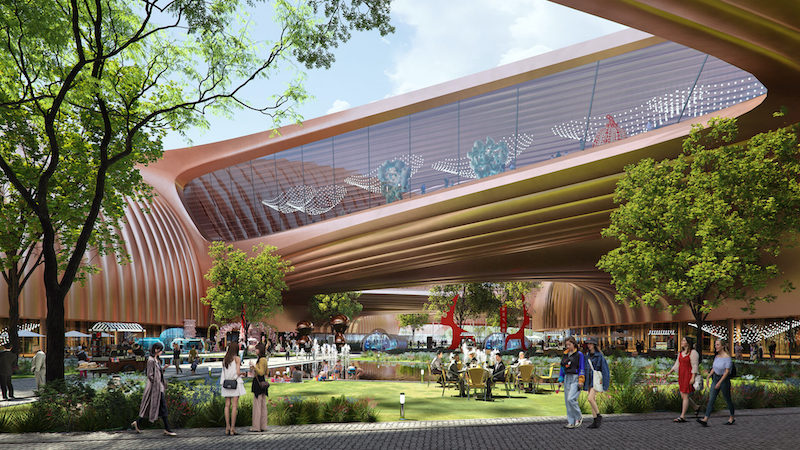
Solar arrays are included and a smart building management system will adjust the exhibition center’s hybrid ventilation as required. Additionally, rainwater collection and grey water recycling will complement the extensive gardens and natural landscaping. Modular fabrication and construction methods will be used to minimize construction time, investment, and operational costs.
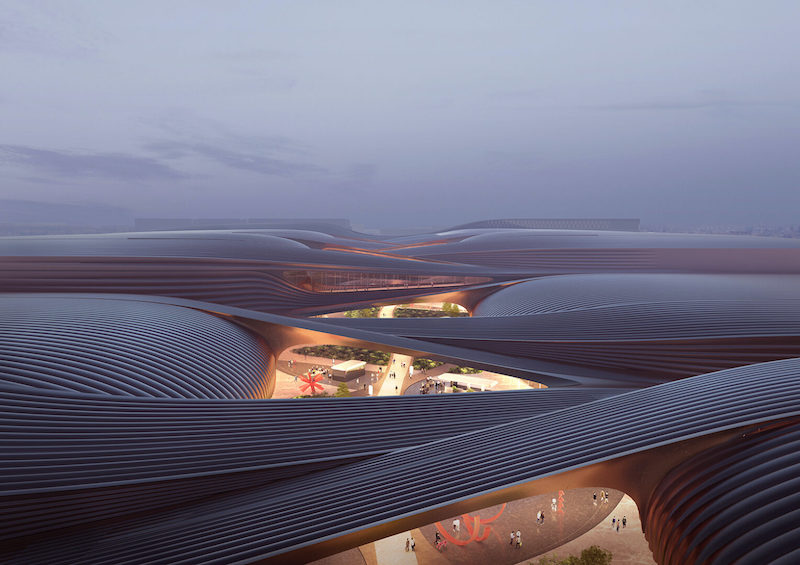
Related Stories
| Jul 18, 2014
Top Engineering Firms [2014 Giants 300 Report]
Fluor, Arup, Day & Zimmermann top Building Design+Construction's 2014 ranking of the largest engineering firms in the United States.
| Jul 18, 2014
Top Architecture Firms [2014 Giants 300 Report]
Gensler, Perkins+Will, NBBJ top Building Design+Construction's 2014 ranking of the largest architecture firms in the United States.
| Jul 18, 2014
2014 Giants 300 Report
Building Design+Construction magazine's annual ranking the nation's largest architecture, engineering, and construction firms in the U.S.
| Jul 17, 2014
A new, vibrant waterfront for the capital
Plans to improve Washington D.C.'s Potomac River waterfront by Maine Ave. have been discussed for years. Finally, The Wharf has started its first phase of construction.
| Jul 9, 2014
Harvard Business School to build large-scale conference center
Expected to open in 2018, the facility will combine the elements of a large-scale conference center, a performance space, and an intimate community forum. The new building will be designed by Boston-based William Rawn and Associates.
| Jul 7, 2014
7 emerging design trends in brick buildings
From wild architectural shapes to unique color blends and pattern arrangements, these projects demonstrate the design possibilities of brick.
| Jul 2, 2014
Emerging trends in commercial flooring
Rectangular tiles, digital graphic applications, the resurgence of terrazzo, and product transparency headline today’s commercial flooring trends.
| Jul 1, 2014
Sochi's 'kinetic façade' may steal the show at the Winter Olympics
The temporary pavilion for Russian telecom operator MegaFon will be wrapped with a massive digital "pin screen" that will morph into the shape of any face.
| Jun 30, 2014
Work starts on Jean Nouvel-designed European Patent Office in the Netherlands [slideshow]
With around 80,000 sm and a budget of €205 million self-financed by the EPO, the complex will be one of the biggest office construction sites ever in the Netherlands.
| Jun 18, 2014
Arup uses 3D printing to fabricate one-of-a-kind structural steel components
The firm's research shows that 3D printing has the potential to reduce costs, cut waste, and slash the carbon footprint of the construction sector.


